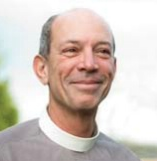Have you ever tried to get somewhere but forgot to bring the directions? You start out with a strong conviction that you know where you are going, but then something seems out of place; a little doubt creeps in, and you wonder to yourself, “Is this the way? It looks familiar, but then, again, it doesn’t.” And if the sky darkens as you travel, your doubt increases; you regret having left the directions behind, and you now wish you had the phone number of the person you were going to meet.
Children do not like darkness. They intuitively imagine bogeymen under beds and in closets. As a boy, I would ask my parents not to shut the bedroom door all the way after we said my bedtime prayers, or to leave the closet light on. It was more comforting to have a bit of light than to be alone with the silence of my irrational fears.
As we get older, we grow more comfortable with darkness, perhaps because we are more willing to face the reality of who we really are and to confront more prayerfully that which needs to be changed about how we live our lives.
Searching for meaning in our lives (some might call this looking God) is like that. We keep striving to find something familiar, something to light the way. But then we realize that God calls us to do just the opposite. We must enter the darkness of the unknown, turn away from the familiar, and enter into the threatening void of our deepest fears and anxieties, for that is where God waits.
Julius Caesar set the date for the winter solstice, the longest night of the year, as December 25, when the earth is farthest from the sun in its elliptical orbit. For those of us in the northern hemisphere, it is the time when we are tipped on our axis away from the sun. Science has corrected Caesar’s date for the winter solstice, and science teaches us something more. We now know that being deprived of light can lead to emotional stress and even depression. Modern research suggests that there is much more depression in peoples who live closest to the earth’s Polar Regions, where darkness lasts much longer during the winter days. The depressive psychological effect of winter darkness is called “seasonal affective disorder.” Some call it “cabin fever,” others “the winter blues.”
And the treatment for this disorder? Well, it may not surprise you to learn that it is light. A Wikipedia site explains that “Light therapy, increased negative ion exposure (which can be attained from plants and well ventilated flames, burning wood or beeswax) can reinvigorate the body from its seasonal lull and relieve winter blues by decreasing melatonin secretions, increasing serotonin and temporarily creating a more even sleeping pattern.”
Who is to say that our traditional winter festivals surrounding December 25, calling for lighted houses and trees, parlor fires, communion with close ones, and festive singing, aren’t simply winter therapies that have evolved to help keep us sane during our dark months? Imagine modern science supporting religious tradition and helping us to better understand of our fear of the dark and our intuitive craving for light.
The Judeo-Christian God knows about darkness. The Hebrew Bible opens this way: “In the beginning when God created the heavens and the earth, the earth was a formless void and darkness covered the face of the deep.” Two ideas merge in this story: One explains that God created light. God’s first words were, “Let there be light.” The second idea is that all creation was good. All of it was very good.
As we contemplate what God made, we cannot help but imagine that God wanted something more than darkness and void. When God commanded light, God created the opportunity for sight and with it the visual appreciation of the goodness of creation. In creating human beings, God gave us the potential to love each other and to love God. She/He did not command us to love Her/Him. Rather She/He gave us the freedom to seek Her/Him of our own free will. God waits in the darkness for us, and is willing to be lonely while we busy ourselves with our quotidian labors and concerns.
And God still waits. God waits for us to come into the dark, to seek and to say, “I love you” because we want to, not because we have to. Isn’t this the essence of the human condition—a deep desire to be loved and to be needed? The act of leaving the light on in the closet for a child is an act of caring and understanding. Perhaps it is not so much the light that matters as the compassion of the adult to have tenderness for a child who is afraid of the dark and to light the way to comfort and security.
